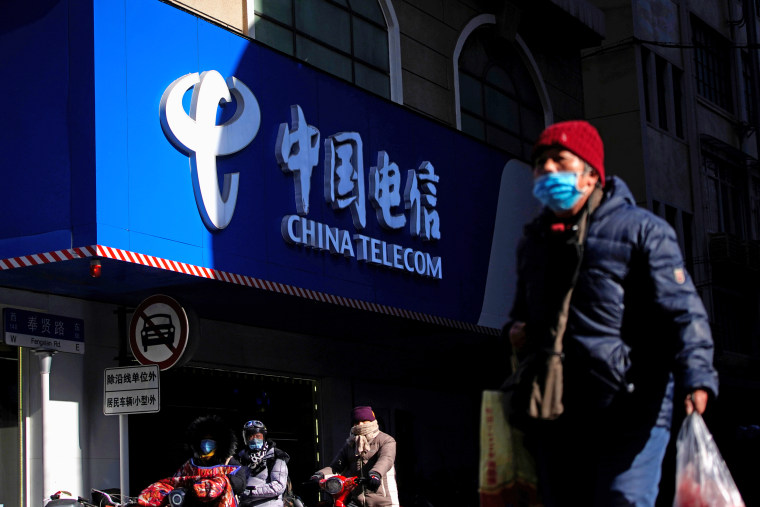WASHINGTON — The U.S. Federal Communications Commission voted Tuesday to revoke the authorization for China Telecom's U.S. subsidiary to operate in the United States, citing national security concerns.
The decision means China Telecom Americas must now discontinue U.S. services within 60 days. China Telecom, the largest Chinese telecommunications company, has had authorization to provide telecommunications services for nearly 20 years in the United States.
The FCC found that China Telecom "is subject to exploitation, influence and control by the Chinese government and is highly likely to be forced to comply with Chinese government requests without sufficient legal procedures subject to independent judicial oversight."
The U.S. regulator added that Chinese government ownership and control "raise significant national security and law enforcement risks by providing opportunities" for the company and the Chinese government "to access, store, disrupt and/or misroute U.S. communications."
Download the NBC News app for breaking news and politics
A spokesperson for China Telecoms America told Reuters the FCC's decision was "disappointing."
"We plan to pursue all available options while continuing to serve our customers," the spokesperson said.
China Telecom served more than 335 million subscribers worldwide as of 2019 and claims to be the largest fixed line and broadband operator in the world, according to a Senate report, and also provides services to Chinese government facilities in the United States.
The U.S. government said in April 2020 that China Telecom targets its mobile virtual network to more than 4 million Chinese Americans; 2 million Chinese tourists a year visiting the United States; 300,000 Chinese students at American colleges; and the more than 1,500 Chinese businesses in America.
In April 2020, the FCC warned it might shut down U.S. operations of three state-controlled Chinese telecommunications companies, citing national security risks, including China Telecom Americas as well as China Unicom Americas, Pacific Networks Corp and its wholly owned subsidiary ComNet (USA) LLC, after U.S. agencies raised national security concerns.

FCC Commissioner Brendan Carr, a Republican, said the FCC "must remain vigilant to the threats posed" by China. The Chinese Embassy in Washington did not respond to a request for comment.
U.S. Senators Rob Portman and Tom Carper, who issued a report in 2020 on Chinese telecom companies' U.S. operations, praised the FCC decision in a joint statement that cited "substantial and serious national security and law enforcement risks."
In March, the FCC began efforts to revoke authorization for China Unicom Americas, Pacific Networks and its wholly owned subsidiary ComNet to provide U.S. telecommunications services.
In May 2019, the FCC voted unanimously to deny another state-owned Chinese telecommunications company, China Mobile, the right to provide U.S. services.
The FCC has taken other actions against Chinese telecoms and other companies.
Last year, the FCC designated Huawei Technologies Co and ZTE Corp as national security threats to communications networks — a declaration that barred U.S. firms from tapping an $8.3 billion government fund to purchase equipment from the companies. The FCC in December adopted rules requiring carriers with ZTE or Huawei equipment to "rip and replace" that equipment.
In March, the FCC designated five Chinese companies as posing a threat to national security under a 2019 law, including Huawei, ZTE, Hytera Communications, Hangzhou Hikvision Digital Technology Co and Zhejiang Dahua Technology Co.
